Electronics Manufacturing Software
ERP software can improve productivity, compliance and efficiency for electrical manufacturing companies. Electronics manufacturing software streamlines finance, inventory, manufacturing and distribution.
At ERP Research, we help electronics manufacturing companies to find the best software for their needs.
Top 10 ERP Systems For Manufacturing
Learn everything you need to know about the best ERP solutions for manufacturers in our detailed solution comparison report. We compare top manufacturing ERP software such as SAP, Microsoft, Oracle and more.
Electronical Manufacturing Software for Small Businesses
Small and medium sized (SME) electronical manufacturing firms need ERP systems which are cost effective, fast to implement and scalable.
Many electronics manufacturing organizations have adopted ERP solutions such as these to handle their growth efficiently:
Infor CloudSuite Industrial (Syteline)
This solution provides advanced scheduling, quality management, and real-time reporting. Its lean manufacturing focus benefits electronics manufacturers aiming to streamline operations.
SAP Business One
This comprehensive solution handles every aspect of your daily operations, from CRM to manufacturing and analytics. It's great for smaller electronics manufacturers needing end-to-end visibility and control.
Oracle Netsuite
As a cloud-based ERP solution, NetSuite offers a 360-degree view of operations. Its strong supply chain and inventory management tools can improve efficiency in electronics manufacturing.
Odoo
Odoo is an open source ERP platform which has been used by small and fast growing manufacturing organizations looking to unify their processes from shop floor to manufacturing execution and beyond.
SAP Business ByDesign
A cloud-based ERP solution suitable for mid-sized electronics manufacturers. It supports end-to-end processes including financials, procurement, sales, supply chain, and production.
Microsoft Dynamics Business Central
It offers both CRM and ERP capabilities with strong integration with Office 365. It aids electronics manufacturers in connecting sales, service, and operations to better understand customer needs and improve production efficiency.
SYSPRO ERP
SYSPRO’s sector-specific focus helps electronics manufacturers meet unique challenges, like managing complex supply chains, maintaining regulatory compliance, and optimizing resource utilization.
Acumatica
It delivers real-time data across a company's operations to drive decision-making. Its manufacturing suite helps electronics manufacturers in managing product lifecycle, bills of materials, production, orders, and inventory.
IFS Applications
This flexible and scalable solution combines ERP, EAM, and service management. It's suitable for electronics manufacturers who need to maintain equipment while managing complex manufacturing processes.
Epicor
Epicor's solution offers robust functionality for project management, quality assurance, and supply chain management, making it ideal for electronics manufacturers prioritizing these areas.
QAD Systems
QAD focuses on the unique needs of manufacturing industries. It offers solutions for demand and supply chain planning, material requirements planning, and other processes crucial in electronics manufacturing.
SYSPRO
SYSPRO is a strong ERP solution for manufacturers in the small and medium-sized business space and is used by worldwide brands to manage production, sales orders and supply chain management.
Global Shop Solutions
Global Shop Solutions is an ERP specificially designed for small and medium sized manufacturing companies and provides flexibility and deep production capabilities at a low cost - both On-Premise and in the Cloud.
Electrical Manufacturing ERP Software for Large Enterprises
What are some of the best ERP systems for large electrical manufacturers? See our highlighted best ERP software solutions for large electronics manufacturing companies below:
SAP S/4 HANA
S/4 HANA's powerful in-memory processing offers real-time insights and efficient operations. Its advanced production planning and scheduling are ideal for large electronics manufacturers.
Microsoft Dynamics 365
Highly customizable ERP offering integration, intelligence, and business applications to support the unique needs of the aerospace and defense industry.
Oracle ERP Cloud
Oracle ERP Cloud is a popular ERP solution amongst manufacturers, particularly in process industries. ERP Cloud offers integrated functionality across large enterprises including supply chain, production, HCM, financials and more.
Manufacturing ERP Requirements Template
Speed up your ERP requirements gathering process with our free manufacturing ERP functional requirements template.
Cloud ERP for Aerospace
What are some of the best Cloud ERP systems for aerospace and defense manufacturing? Here are our top picks:
SAP S/4 HANA
SAP S/4 HANA is one of the best Cloud ERP for manufacturing and is used by many manufacturing companies in the food, discrete, automotive and other manufacturing industries. This Cloud ERP solution is available in private or public Cloud deployments.
Microsoft Dynamics 365
Microsoft Dynamics 365 is a robust Cloud ERP for manufacturing system which comes in several editions built for small and large businesses alike. Dynamics is one of the best Cloud ERP for manufacturing, available in both private and public Cloud.
Oracle ERP Cloud
Oracle ERP Cloud is a popular ERP solution amongst manufacturers, particularly in process industries. ERP Cloud offers integrated functionality across large enterprises including supply chain, production, HCM, financials and more.
SAP Business ByDesign
SAP Business ByDesign is a fully SaaS Cloud ERP for manufacturing solution that serves as a stable solution with over 30 out of the box processes for manufacturing firms.
Oracle Netsuite
Netsuite has become a popular ERP system choice for small and medium manufacturers that are looking for a Cloud based ERP system to manage growth across sales, production, supply chain, inventory and financials.
Infor CloudSuite Industrial (Syteline)
Infor CSI is a popular Cloud ERP solution for small and medium sized manufacturing companies in discrete and process manufacturing industries. See how Infor compares.
Infor CloudSuite Industrial
Infor CloudSuite Industrial is an integrated enterprise resource planning (ERP) system that can streamline various aspects of manufacturing, including electronics manufacturing. Here are some ways how it could be utilized:
-
Product Lifecycle Management: Infor CloudSuite can assist in the entire lifecycle of a product, from its inception to eventual retirement. This includes design, production, and after-service. In electronics manufacturing, it can be used to track revisions, BOM (Bill of Contents) changes, and manage engineering changes.
-
Inventory Management: This feature allows the management of raw materials, work-in-progress inventory, and finished goods. Real-time data helps to minimize stockouts and overstocks. For electronics manufacturers, this means they can better manage their components and reduce costs.
-
Quality Management: Quality is a key focus in electronics manufacturing. CloudSuite can help in monitoring quality parameters, managing non-conformances, and tracking corrective actions. This can lead to improved product quality and reduced rework costs.
-
Manufacturing Operations Management: It can track real-time production activities, manage work orders, and schedule operations in the production line. This can improve efficiency and productivity in the electronics manufacturing process.
-
Supply Chain Management: With Infor CloudSuite, a company can better manage its supply chain, including procurement, suppliers, logistics, and distribution. This can help to ensure the timely availability of components for electronics manufacturing.
-
Advanced Planning and Scheduling: This can help electronics manufacturers to plan their production activities better, taking into account available resources, material availability, and customer demand. This can help in reducing lead times and improving on-time delivery.
-
Customer Relationship Management (CRM): CRM is critical in any industry, and CloudSuite's CRM module can assist in managing customer relationships, handling sales orders, and providing post-sales support.
-
Business Intelligence and Reporting: It provides comprehensive reporting and analysis tools to measure performance, identify trends, and make data-driven decisions. In the context of electronics manufacturing, it can help to identify bottlenecks, inefficiencies, and opportunities for improvement.
-
Financial Management: By integrating financial data with other business operations, Infor CloudSuite provides a holistic view of the company's performance, thus helping in financial planning, budgeting, and forecasting.
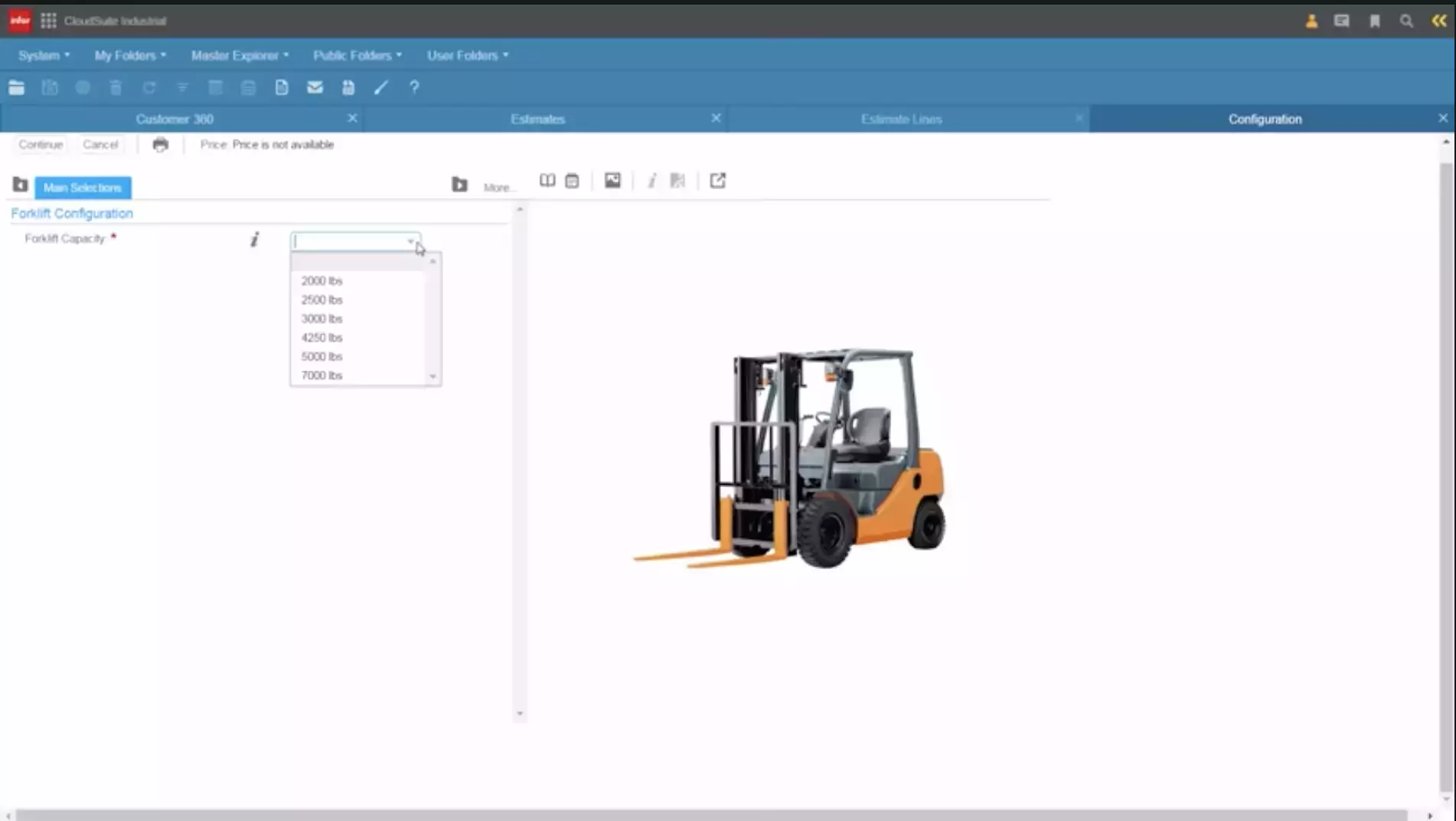
SAP Business One
SAP Business One is an Enterprise Resource Planning (ERP) solution designed for small to mid-sized businesses. However, it's robust enough to be beneficial to electronics manufacturing businesses of various sizes. Here's how:
-
Production Planning: SAP Business One offers production planning tools that allow electronic manufacturers to plan and schedule their operations in line with available resources, raw material availability, and customer demand. This results in improved efficiency and can help reduce manufacturing costs.
-
Inventory Management: The system can manage raw materials, semi-finished, and finished goods. The real-time tracking feature helps reduce overstock and stock-outs. Electronics manufacturers can use it to manage their parts and reduce costs linked with holding excess inventory.
-
Quality Control: SAP Business One allows manufacturers to maintain and monitor quality throughout the manufacturing process. This feature is critical for electronics manufacturing, where the cost of errors can be very high. The system can track and manage non-conformances, ensuring that only products that meet quality standards are delivered.
-
Supply Chain Management: SAP Business One helps manage the supply chain end-to-end, including procurement, supplier management, logistics, and distribution. For electronics manufacturers, this ensures timely availability of components and smooth production.
-
Customer Relationship Management (CRM): The integrated CRM module allows manufacturers to manage customer relationships, handle sales orders, and provide post-sales support. This ensures high customer satisfaction and repeat business.
-
Financial Management: Integrating financials with other business operations, SAP Business One provides a complete view of the company's performance. It helps in financial planning, budgeting, and controlling. In electronics manufacturing, where managing costs can be complex, this feature is particularly useful.
-
Reporting and Analytics: SAP Business One provides a range of reporting and analytics tools that can help electronics manufacturers measure performance, identify trends, and make data-driven decisions. These insights can drive continuous improvement and growth.
-
Project Management: The project management module allows tracking of all projects from start to finish. This can be particularly helpful in electronics manufacturing where there are often complex projects to manage.
-
After-Sales Support: With its integrated service module, SAP Business One can manage after-sales support activities, including warranty management and service contracts. This can improve customer satisfaction and drive repeat business.
-
Integration Capabilities: SAP Business One can be integrated with various other systems such as CAD, PLM, eCommerce, etc. which are widely used in the electronics manufacturing industry.
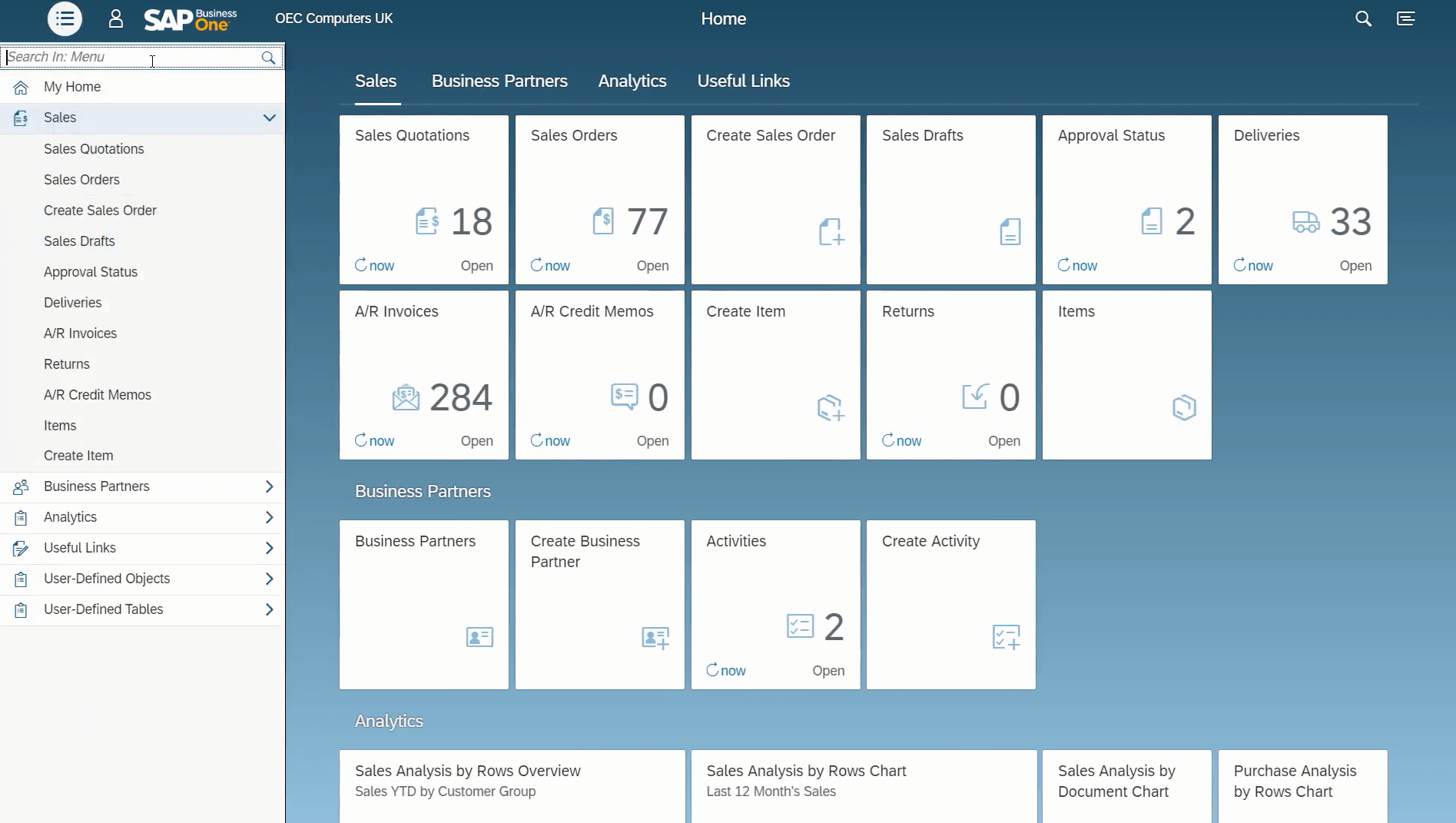
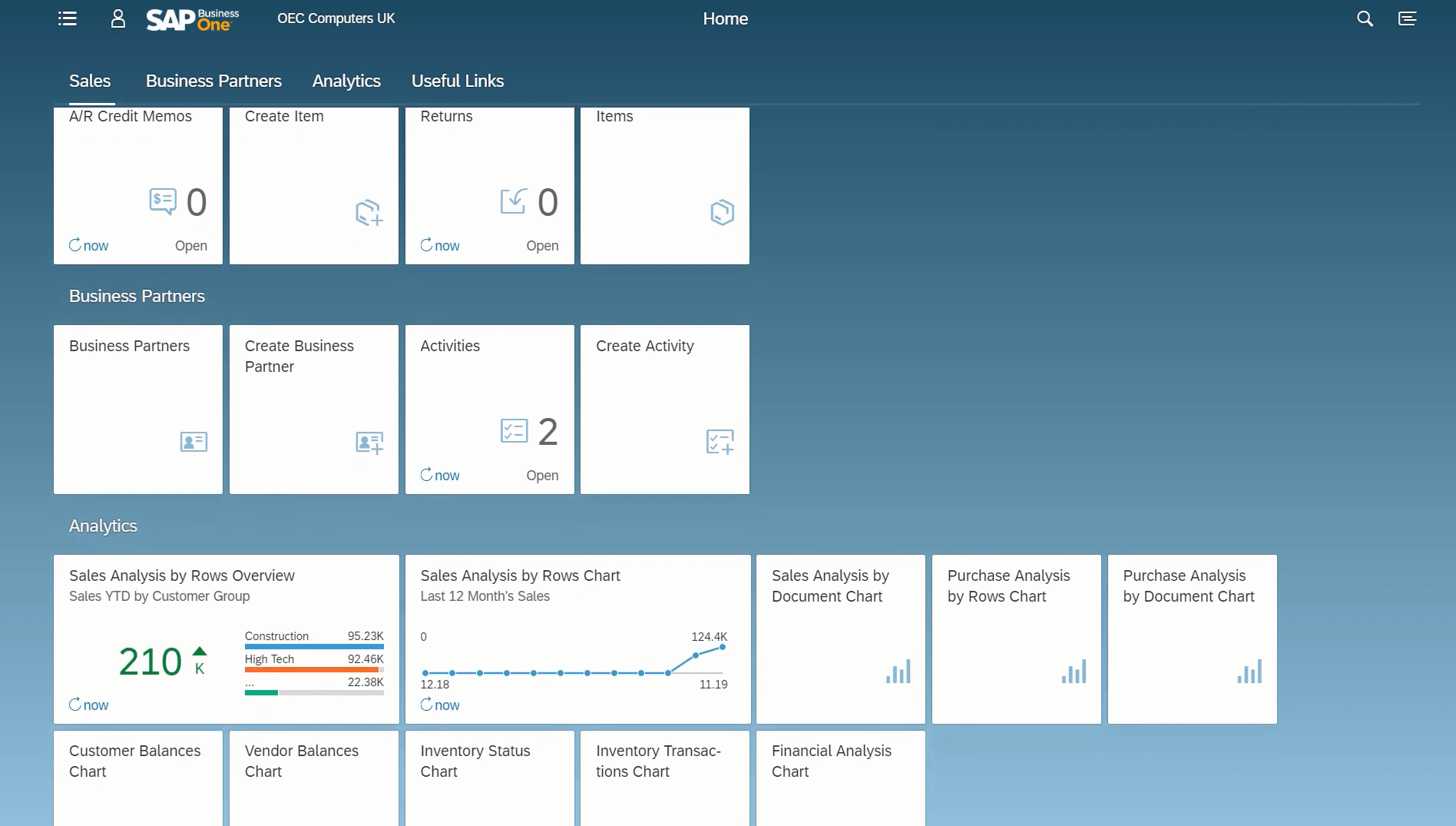
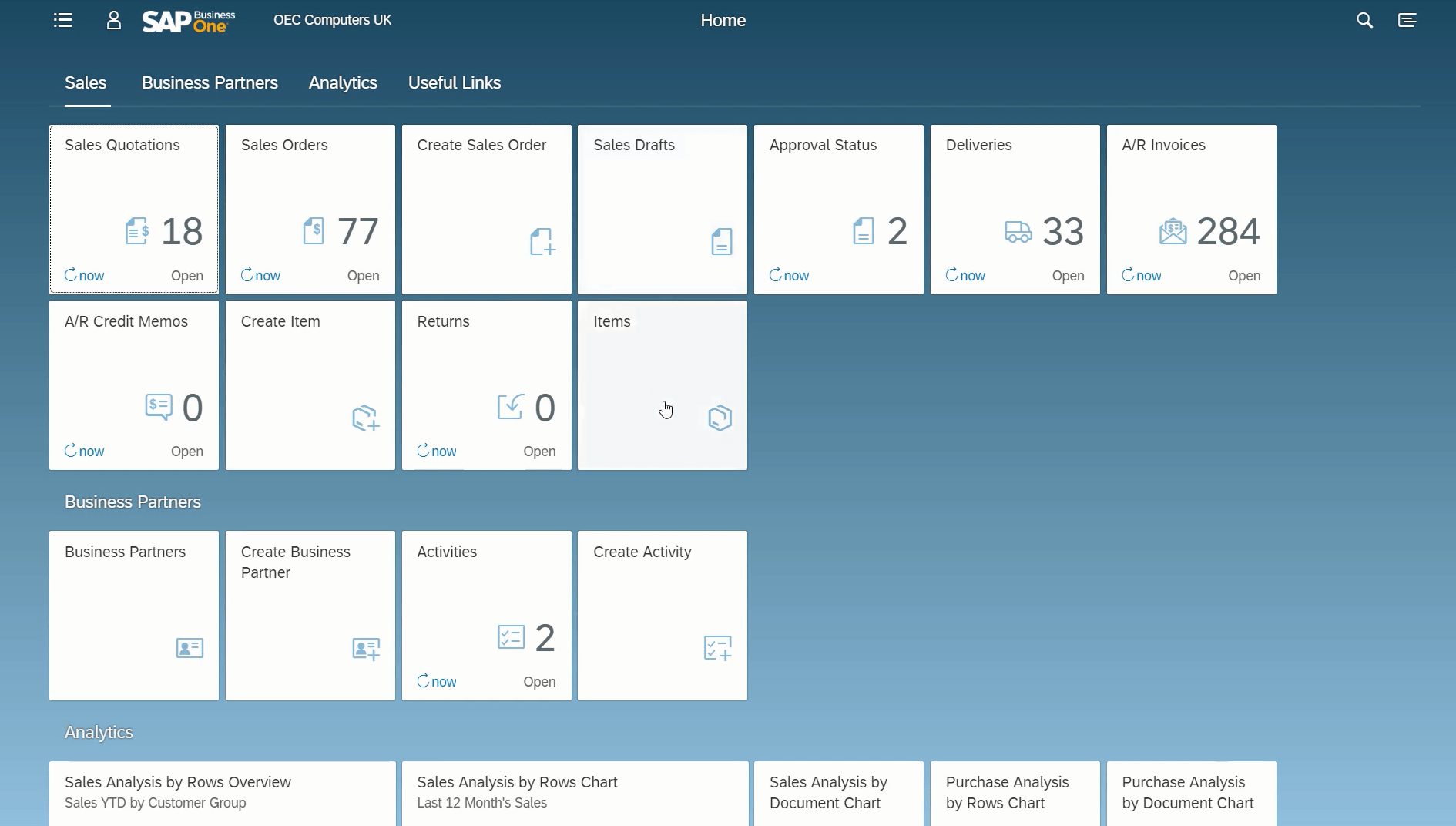
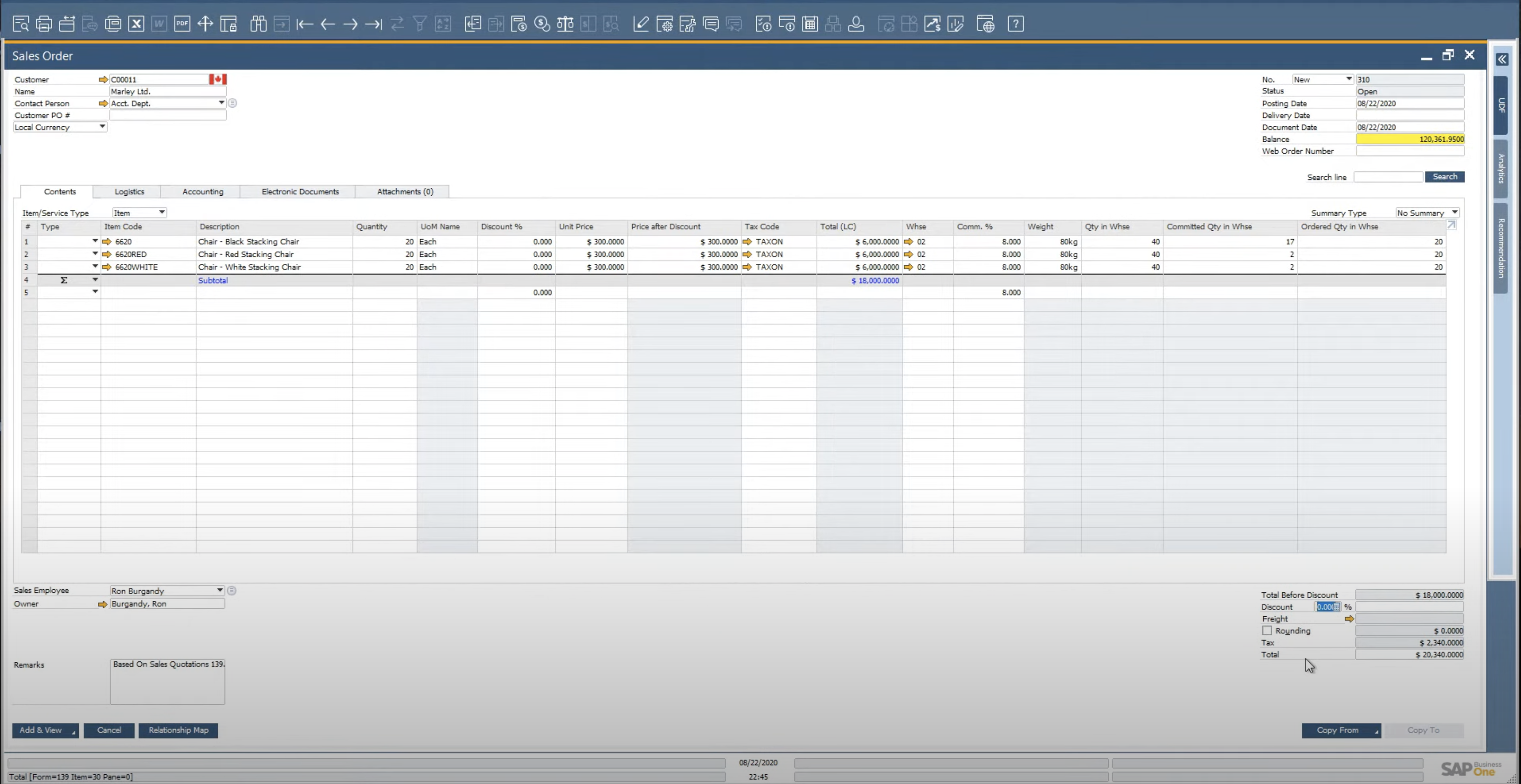
Epicor Kinetic
Epicor Kinetic, previously known as Epicor ERP, is an enterprise resource planning (ERP) solution that can streamline a variety of processes in manufacturing industries, including electronics manufacturing. Here's how:
-
Product Lifecycle Management (PLM): Epicor Kinetic can manage the entire lifecycle of a product, from design to retirement. This is particularly useful in electronics manufacturing where product iterations are frequent and often complex. The system can track design changes, manage BOM updates, and handle engineering change orders.
-
Inventory Management: The system offers robust inventory management capabilities. It can manage raw materials, work-in-progress inventory, and finished goods. This can help electronics manufacturers avoid overstocking and understocking, reducing costs and improving efficiency.
-
Quality Management: Quality control is crucial in electronics manufacturing. Epicor Kinetic's Quality Assurance module can help manage quality checks, non-conformance reporting, and corrective action planning. This can lead to higher product quality and reduced rework costs.
-
Manufacturing Execution System (MES): Epicor's MES module can track and manage real-time production activities. It can manage work orders, schedule operations, and monitor production lines. This can lead to improved productivity and efficiency in the electronics manufacturing process.
-
Supply Chain Management: With its robust SCM capabilities, Epicor Kinetic can manage various aspects of the supply chain, including procurement, supplier management, logistics, and distribution. This can ensure the smooth and timely availability of necessary components for electronics manufacturing.
-
Advanced Planning and Scheduling (APS): APS can help electronics manufacturers plan production activities better, considering resource availability, material availability, and customer demand. This can lead to reduced lead times and improved customer satisfaction.
-
Customer Relationship Management (CRM): CRM is crucial in any industry, and Epicor's CRM module can assist in managing customer relationships, handling sales orders, and providing after-sales service. This can lead to improved customer satisfaction and loyalty.
-
Business Intelligence and Reporting: Epicor Kinetic provides comprehensive reporting and analysis tools. These can be used to measure performance, identify trends, and make data-driven decisions. This can help identify bottlenecks, inefficiencies, and opportunities for improvement in electronics manufacturing.
-
Financial Management: By integrating financial data with other business operations, Epicor Kinetic provides a comprehensive view of the company's performance. This can aid in financial planning, budgeting, and forecasting.
-
Integration Capabilities: Epicor Kinetic can be integrated with various other systems such as CAD, PLM, eCommerce, etc. which are widely used in the electronics manufacturing industry.
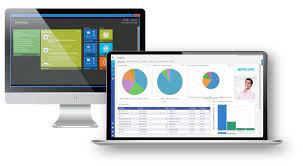
Acumatica
Acumatica is a cloud-based enterprise resource planning (ERP) solution that is widely used by small and medium-sized businesses across different industries, including electronics manufacturing. Here are some ways how it can be utilized:
-
Product Management: Acumatica can handle all aspects of product management, from creation to obsolescence. It can manage revisions, BOM changes, and engineering changes. In electronics manufacturing, this is particularly important because products often go through several revisions before reaching the market.
-
Inventory Management: Acumatica can manage raw materials, work-in-progress inventory, and finished goods. It offers real-time tracking, which helps in minimizing stockouts and overstocks. This feature can help electronics manufacturers manage their parts and reduce costs associated with excess inventory.
-
Quality Management: Quality is a key aspect of electronics manufacturing. Acumatica allows manufacturers to monitor quality parameters, manage non-conformances, and track corrective actions. This can help to improve the overall quality of products and reduce rework costs.
-
Manufacturing Operations Management: Acumatica can track real-time production activities, manage work orders, and schedule operations in the production line. This can improve efficiency and productivity in the manufacturing process.
-
Supply Chain Management: Acumatica provides comprehensive tools for managing the supply chain, including procurement, supplier management, logistics, and distribution. This can ensure timely availability of components and smooth production processes.
-
Advanced Planning and Scheduling: Acumatica can help electronics manufacturers to plan their production activities better. It takes into account available resources, material availability, and customer demand, helping to reduce lead times and improve on-time delivery.
-
Customer Relationship Management (CRM): The CRM module in Acumatica can assist in managing customer relationships, handling sales orders, and providing after-sales support. This can improve customer satisfaction and foster long-term relationships.
-
Business Intelligence and Reporting: Acumatica provides a range of reporting and analytics tools. These can be used to measure performance, identify trends, and make data-driven decisions. In electronics manufacturing, this can help to identify bottlenecks, inefficiencies, and areas of opportunity.
-
Financial Management: Acumatica integrates financial data with other business operations, providing a comprehensive view of the company's performance. This can aid in financial planning, budgeting, and forecasting.
-
Integration Capabilities: Acumatica can be integrated with various other systems such as CAD, PLM, eCommerce, etc. which are widely used in the electronics manufacturing industry.

Plex Manufacturing Cloud
Plex Manufacturing Cloud is an enterprise resource planning (ERP) solution developed specifically for manufacturing businesses. It's especially suited to industries where precision and compliance are critical, such as electronics manufacturing. Here's how it could be utilized:
-
Product Lifecycle Management (PLM): Plex can assist in managing the entire lifecycle of a product, from its initial conception to retirement. In electronics manufacturing, it can track design changes, manage Bill of Materials (BOM) updates, and handle engineering change orders.
-
Inventory Management: Plex provides real-time inventory management, allowing companies to control raw materials, work-in-progress, and finished goods. This can help in reducing overstock and understock situations, ultimately leading to cost savings and efficient operations in electronics manufacturing.
-
Quality Management: Plex's Quality Management System (QMS) allows manufacturers to maintain and monitor quality throughout the manufacturing process. In electronics manufacturing where the cost of errors can be significant, this feature can help ensure that only products meeting the requisite quality standards are delivered.
-
Manufacturing Operations Management: Plex can track and manage real-time production activities. It can handle work orders, schedule operations, and monitor production lines, leading to improved productivity and efficiency in electronics manufacturing.
-
Supply Chain Management: Plex offers a robust set of tools for managing various aspects of the supply chain, including procurement, supplier management, logistics, and distribution. This can ensure a smooth and timely availability of necessary components for electronics manufacturing.
-
Advanced Planning and Scheduling: Plex's APS capabilities can help electronics manufacturers plan their production activities efficiently, taking into consideration the availability of resources, material, and customer demand. This can help in reducing lead times and improving on-time delivery.
-
Customer Relationship Management (CRM): Plex's CRM module can assist in managing customer relationships, handling sales orders, and providing post-sales service, all of which can help improve customer satisfaction and loyalty.
-
Business Intelligence and Reporting: Plex provides comprehensive reporting and analytics tools. These can help measure performance, identify trends, and make data-driven decisions, which can be particularly beneficial in identifying inefficiencies and areas for improvement in electronics manufacturing.
-
Financial Management: By integrating financial data with other business operations, Plex provides a comprehensive view of the company's performance, aiding in financial planning, budgeting, and forecasting.
-
Integration Capabilities: Plex Manufacturing Cloud can be integrated with various other systems such as CAD, PLM, eCommerce, etc., commonly used in the electronics manufacturing industry.
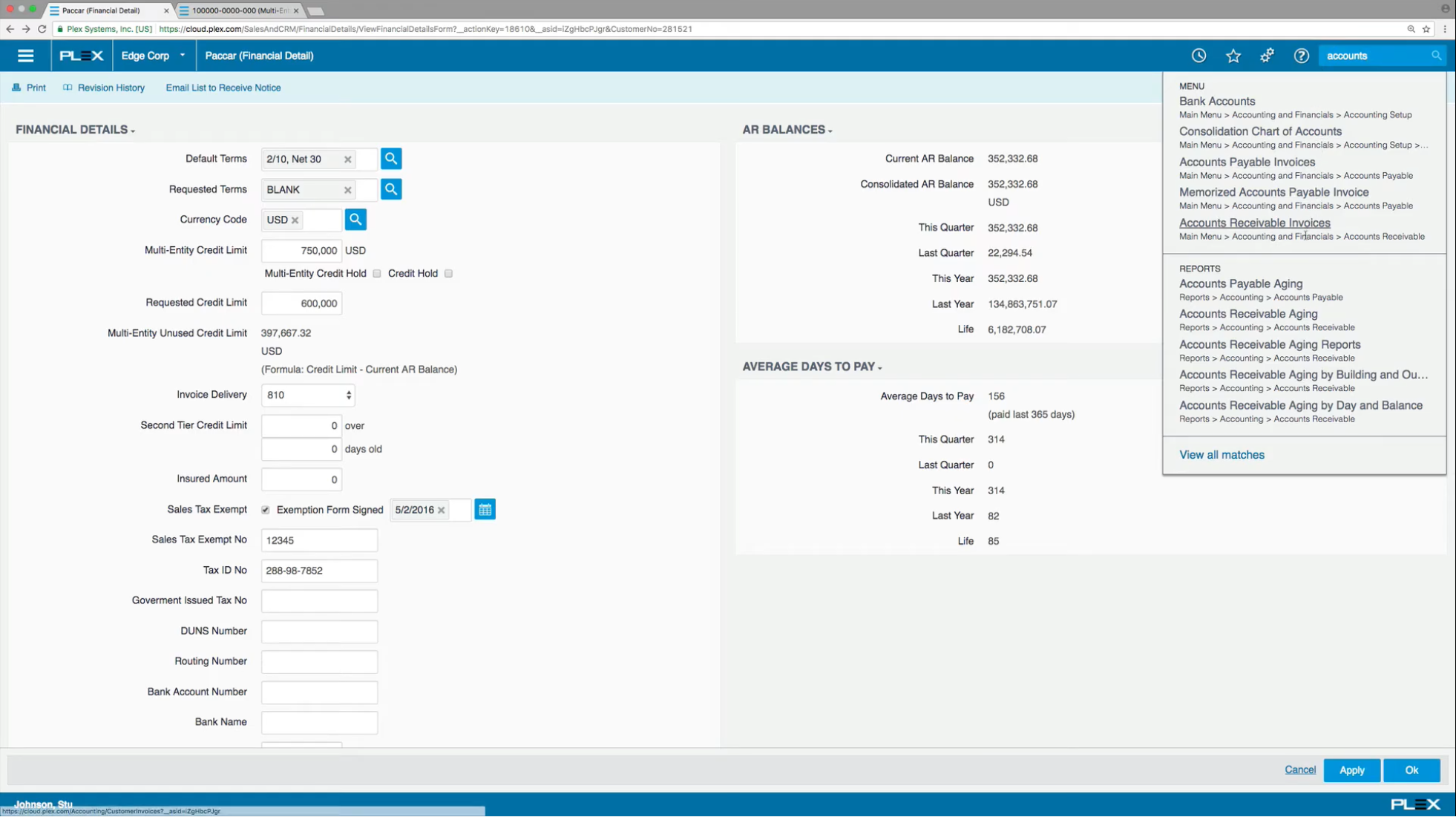
SAP S/4 HANA
SAP S/4HANA is an advanced enterprise resource planning (ERP) system that integrates various functions of a business into a single system. It can be effectively utilized in electronics manufacturing in the following ways:
-
Product Lifecycle Management (PLM): SAP S/4HANA can assist in managing the entire lifecycle of a product, from its conception to retirement. It can manage design changes, handle BOM updates, and track engineering changes, which is crucial in electronics manufacturing.
-
Inventory Management: SAP S/4HANA provides real-time inventory management, which can control raw materials, work-in-progress, and finished goods. This can help electronics manufacturers avoid stockouts and overstocks, reducing costs associated with excess inventory.
-
Quality Management: The system can monitor quality parameters, manage non-conformances, and track corrective actions. This leads to improved product quality and reduced rework costs in electronics manufacturing.
-
Manufacturing Operations Management: SAP S/4HANA can track real-time production activities, manage work orders, and schedule operations in the production line. This can lead to improved efficiency and productivity.
-
Supply Chain Management: With SAP S/4HANA, a company can manage its supply chain end-to-end, including procurement, supplier management, logistics, and distribution. This ensures the timely availability of components for electronics manufacturing.
-
Advanced Planning and Scheduling: The system can help electronics manufacturers to plan their production activities better, considering resource availability, material availability, and customer demand. This can reduce lead times and improve on-time delivery.
-
Customer Relationship Management (CRM): The CRM capabilities in SAP S/4HANA can assist in managing customer relationships, handling sales orders, and providing post-sales support. This leads to improved customer satisfaction and loyalty.
-
Business Intelligence and Reporting: SAP S/4HANA provides comprehensive reporting and analytics tools, which can be used to measure performance, identify trends, and make data-driven decisions. In electronics manufacturing, this can help identify bottlenecks, inefficiencies, and areas for improvement.
-
Financial Management: By integrating financial data with other business operations, SAP S/4HANA provides a comprehensive view of the company's performance, aiding in financial planning, budgeting, and forecasting.
-
Integration Capabilities: SAP S/4HANA can integrate with various other systems such as CAD, PLM, eCommerce, etc., which are widely used in the electronics manufacturing industry.
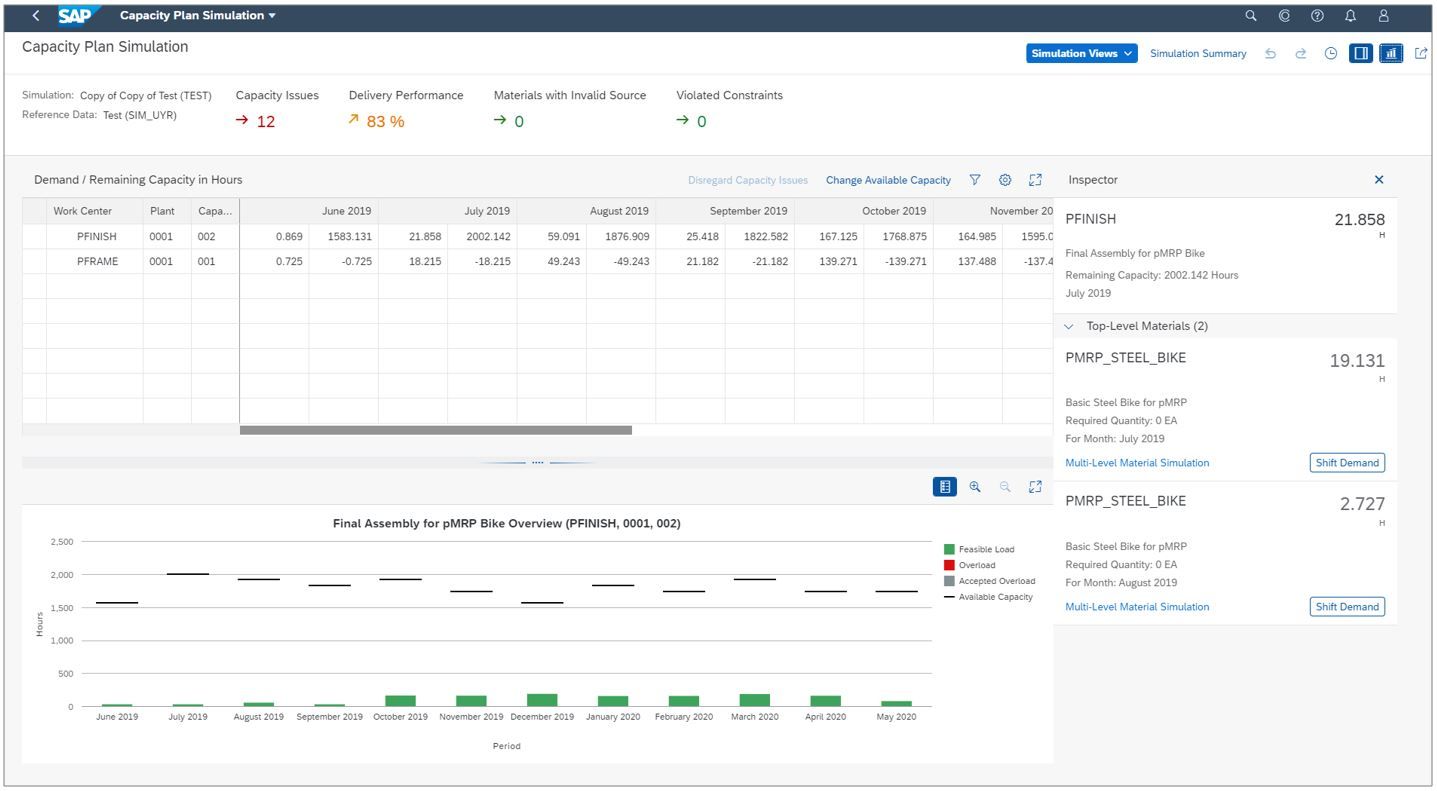
Microsoft Dynamics 365
Microsoft Dynamics 365 is a suite of enterprise resource planning (ERP) and customer relationship management (CRM) applications. It's versatile and robust enough to be beneficial to electronics manufacturing businesses. Here's how:
-
Product Lifecycle Management (PLM): Dynamics 365 can assist with managing the entire lifecycle of a product, from its conception to retirement. This includes tracking design changes, managing BOM updates, and handling engineering change orders, all crucial aspects in electronics manufacturing.
-
Inventory Management: Dynamics 365 offers real-time inventory management, which can control raw materials, work-in-progress, and finished goods. This can help electronics manufacturers avoid overstock and understock situations, reducing costs associated with excess inventory.
-
Quality Management: Quality control is critical in electronics manufacturing. Dynamics 365 allows for the monitoring of quality parameters, management of non-conformances, and tracking of corrective actions. This helps to improve overall product quality and reduces rework costs.
-
Manufacturing Operations Management: Dynamics 365 can track real-time production activities, manage work orders, and schedule operations in the production line. This can improve efficiency and productivity in the manufacturing process.
-
Supply Chain Management: With Dynamics 365, electronics manufacturers can manage various aspects of the supply chain, including procurement, supplier management, logistics, and distribution. This ensures the smooth and timely availability of necessary components for electronics manufacturing.
-
Advanced Planning and Scheduling (APS): The system can help electronics manufacturers plan their production activities efficiently, considering resource availability, material availability, and customer demand. This can help reduce lead times and improve on-time delivery.
-
Customer Relationship Management (CRM): Dynamics 365 has robust CRM capabilities that can assist in managing customer relationships, handling sales orders, and providing after-sales service. This can lead to improved customer satisfaction and loyalty.
-
Business Intelligence and Reporting: Dynamics 365 provides comprehensive reporting and analytics tools that can be used to measure performance, identify trends, and make data-driven decisions. These insights can drive continuous improvement and growth in electronics manufacturing.
-
Financial Management: Dynamics 365 integrates financial data with other business operations, providing a comprehensive view of the company's performance. This can aid in financial planning, budgeting, and controlling.
-
Integration Capabilities: Dynamics 365 can be integrated with various other systems such as CAD, PLM, eCommerce, etc. which are widely used in the electronics manufacturing industry.
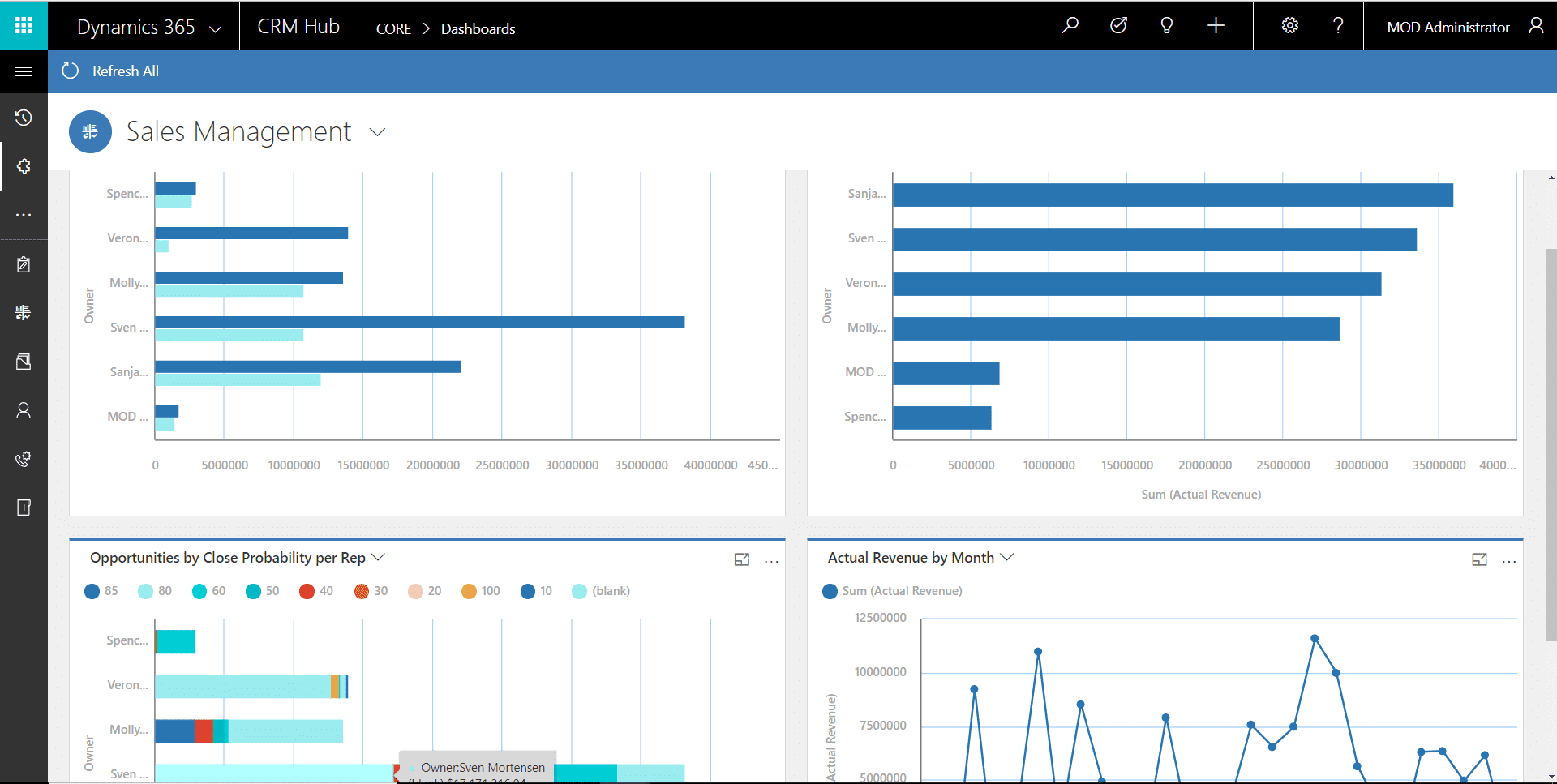
| ERP Software | Modules and Functionality | Number of Customers | Number of Reviews | Minimum Cost | Deployment Options |
|---|---|---|---|---|---|
|
Oracle NetSuite |
Financial Management: General Ledger, Accounts Receivable, Accounts Payable, Fixed Assets, Revenue Recognition; Procurement: Purchase Orders, Vendor Management, Requisition Management, Inventory Management; Inventory Management: Inventory Control, Warehouse Management, Supply Chain Management; CRM: Sales Force Automation, Marketing Automation, Customer Service Management; HR: Employee Records, Time and Expense Tracking, Payroll Management; Ecommerce: Web Storefront, Order Management, Payment Processing | 24,000+ | 970 | $999/month | Cloud |
|
SAP Business One |
Financial Management: General Ledger, Accounts Payable, Accounts Receivable, Fixed Assets; Sales and Customer Management: Sales Orders, Invoicing, Opportunities, Customer Management; Inventory Management: Inventory Control, Goods Receipts and Issues, Production Orders; Purchasing: Purchase Orders, Vendor Management; Analytics and Reporting: Dashboards, KPIs, Crystal Reports; Service Management: Service Contracts, Service Calls, Customer Management; HR: Employee Records, Time Tracking, Payroll | 70,000+ | 860 | $1,500/year | Cloud or On-Premise |
|
Microsoft Dynamics 365 BC |
Financial Management: General Ledger, Accounts Payable, Accounts Receivable, Fixed Assets; Sales and Marketing: Sales Orders, Invoicing, Opportunities, Campaign Management, Customer Management; Purchasing and Inventory: Purchase Orders, Vendor Management, Inventory Control, Warehouse Management; HR: Employee Records, Time and Expense Tracking, Payroll Management; Manufacturing: Bill of Materials, Production Orders, Capacity Planning; Service Management: Service Contracts, Service Orders, Customer Management; Analytics and Reporting: Dashboards, KPIs, Power BI | 200,000+ | 1,030 | $70/user/month | Cloud or On-Premise |
|
Infor CloudSuite Industrial |
Financial Management: General Ledger, Accounts Payable, Accounts Receivable, Fixed Assets; Supply Chain Management: Inventory Control, Warehouse Management, Demand Planning, Procurement; Human Capital Management: Employee Records, Time and Attendance, Payroll Management, Benefits Administration; Project Management: Resource Management, Time and Expense Tracking, Budgeting | 68,000+ | N/A | N/A | Cloud |
|
Epicor ERP |
Financial Management: General Ledger, Accounts Payable, Accounts Receivable, Fixed Assets, Cash Management; Production Management: Bill of Materials, Job Costing, Quality Management, Manufacturing Execution, Production Planning and Scheduling; Supply Chain Management: Inventory Control, Purchase Management, Materials Requirement Planning, Supplier Relationship Management; Sales Management: Sales Orders, Pricing, Quotes, Order Management; Service Management: Service Orders, Contracts, Warranty Management | 20,000+ | 490 | N/A | Cloud or On-Premise |
|
Plex ERP |
Manufacturing Execution System (MES): Production Control, Quality Management, Shop Floor Integration; Supply Chain Management: Inventory Control, Purchasing, Shipping and Receiving, Demand Planning; Financial Management: General Ledger, Accounts Payable, Accounts Receivable, Fixed Assets, Cash Management; Sales Management: Sales Orders, Pricing, Quotes, Order Management; Human Capital Management: Employee Records, Time and Attendance, Payroll Management, Benefits Administration | ||||
| Acumatica | Financial Management, CRM, Distribution Management, Manufacturing Management, Project Accounting, Field Service, E-Commerce | 6,000+ | 600+ | $12,000/year | Cloud, On-Premises |
| Sage X3 | Financial Management, Supply Chain Management, Manufacturing Operations, CRM, HR Management, Business Intelligence, E-Commerce | 7,000+ | 400+ | $30,000/license | Cloud, On-Premises |
| SYSPRO | Financial Management, CRM, Distribution Management, Manufacturing Management, E-Commerce, Human Resources, Business Intelligence | 15,000+ | 500+ | $20,000/license | Cloud, On-Premises |
| SAP Business ByDesign | Financial Management, CRM, HR Management, Project Management, Manufacturing Management, E-Commerce, Supply Chain Management, Analytics | 4,000+ | 200+ | $20,000/year | Cloud |
| Odoo | Financial Management, CRM, Manufacturing Management, E-Commerce, Project Management, HR Management, Website Builder, Inventory Management, Marketing Automation, POS | 50,000+ | 2,000+ | $6/user/month | Cloud, On-Premises |
| QAD ERP | Financial Management, Manufacturing Management, Supply Chain Management, CRM, E-Commerce, Analytics, Demand and Supply Planning, Quality Management, Asset Management | 2,000+ | 100+ | $40,000/license | Cloud, On-Premises |
What is the best ERP for manufacturing in 2021?
We review the best ERP software for manufacturing? We compare and rank the best ERP software for manufacturers in 2021 including SAP Business One, Netsuite, Infor & more.
ERP Requirements Gathering (RFI, RFP) Template Excel
Start your ERP evaluation process with our RFI & RFP Excel template for the engineering industry.
ERP Project Budget Calculator Template
Calculate the costs of your manufacturing ERP project with our prebuilt budget calculator.
Electrical Manufacturing ERP Modules & Functionality
The top ERP software for manufacturers can include a variety of modules and functionalities that allow manufacturing companies to scale and be more efficient. We review some of the key functionality for the best manufacturing ERP software below:
Accounting and Financials
The best ERP for manufacturing has to include accounting and financials capabilities across multiple geographies and business units.
Purchasing
Purchasing needs to be controlled and the best ERP software for manufacturing allows you to do just this.
Supply Chain Management
Manage your supply chain effectively and deal with common issues in the manufacturing industry using SCM capabilities.
Production
Plan your supply chain and manage your manufacturing process in one wholistic ERP system including bill of materials management and kits.
Engineering Management
Manufacturing ERP software needs tight engineering capabilities to quickly iterate products whilst maintaining efficiencies.
Inventory Management
ERP systems for manufacturing allow for real time insights into inventory levels across your organization to drive efficiency.
Asset Management
Manage business assets with ERP for manufacturing to easily capitalise and monitor your assets.
Reporting and dashboards
Develop a single view of your manufacturing business in order to increase transparency, decision-making and ultimately drive results.
Customer Service
Customer service is a crucial part of top ERP software for manufacturing. Tie in data across production, sales and more with manufacturing ERP.
Shop Floor Management
Managing your shop floor effectively is key to providing a robust ERP system for manufacturing.
Customisation
Flexible ERP software that's built on an open and extensible foundation, allowing you to choose the features that suit your business needs.
Mobility
Access your ERP data at any time so you're more available to customers and take advantage of unexpected opportunities as they surface.
Development tools
ERP software for the manufacturing industry features all of the tailored solutions an organization needs to design, build and document their projects faster.
Updates and maintenance
Backed by the consistency of market-leading vendors, ERP software regularly updates to ensure an optimal user experience.
Versatile deployments
Connects customers, partners, and employees through real-time digital relationships to improve the way you do business.
Unlimited support
ERP implementation is a longterm strategic partnership and vendors provide free unlimited technical support for clients.
Electronics Manufacturing ERP Software FAQ
Below we answer some of the most frequently asked questions around electrical manufacturing ERP:
What is ERP in electronics manufacturing?
ERP (Enterprise Resource Planning) in electronics manufacturing refers to software solutions that help manage and integrate various processes and operations in an electronics manufacturing business. This includes everything from product lifecycle management, supply chain management, inventory control, quality assurance, customer relationship management, to financial planning and reporting.
Why is an ERP system important in electronics manufacturing?
ERP systems are important in electronics manufacturing because they help to streamline operations, improve efficiency, and reduce costs. They integrate various functions into a single system, allowing for real-time monitoring and management, improved decision-making, and better alignment with business goals.
Which ERP systems are commonly used in the electronics manufacturing industry?
There are many ERP systems used in the electronics manufacturing industry, some of which include SAP S/4 HANA, Microsoft Dynamics 365, Infor CloudSuite Industrial, Plex Manufacturing Cloud, Epicor Kinetic, Acumatica, and many others.
How does an ERP system help with inventory management in electronics manufacturing?
ERP systems provide real-time tracking of raw materials, work-in-progress, and finished goods inventory. They help avoid overstock and understock situations by optimizing inventory levels based on production schedules, sales forecasts, and customer demand, thereby reducing costs and improving efficiency.
Can an ERP system help with quality management in electronics manufacturing?
Yes, most ERP systems come with a quality management module that allows manufacturers to set and monitor quality parameters, manage non-conformances, and implement corrective actions. This ensures that products meet the required quality standards, reduces the cost of rework, and improves customer satisfaction.
How does an ERP system improve supply chain management in electronics manufacturing?
ERP systems offer a comprehensive view of the supply chain, managing everything from procurement of raw materials, supplier management, production planning, to logistics and distribution. This ensures smooth operations, timely availability of components, and on-time delivery of products.
Can ERP systems integrate with other systems used in electronics manufacturing?
Yes, modern ERP systems are designed to integrate with a variety of other systems such as CAD, PLM, eCommerce, and others. This allows for seamless data flow across systems, improving efficiency and accuracy.
What are some key considerations when implementing an ERP system in electronics manufacturing?
Key considerations include understanding specific business needs and processes, choosing a system that aligns with these needs, ensuring employee training and change management, and planning for data migration and system integration. It's also important to have a well-defined implementation plan and to partner with an experienced ERP vendor.
How does an ERP system support decision-making in electronics manufacturing?
ERP systems provide comprehensive reporting and analytics tools that offer insights into performance metrics, trends, and potential issues. This helps management make informed, data-driven decisions. In addition, real-time visibility into operations enables quick and effective decision-making.
What's the return on investment (ROI) for implementing an ERP system in electronics manufacturing?
The ROI for implementing an ERP system can be substantial, though it can vary based on several factors. Benefits can include increased operational efficiency, reduced costs, improved customer satisfaction, and better decision-making. However, it's important to note that full benefits might not be realized immediately, as it can take time to fully implement the system and for users to adopt it fully.
Start Your ERP Journey With ERP Research
We help manufacturing firms to prepare for ERP change by guiding them through each stage of the process:
-
Build An ERP Business Case 2-3 weeksA solid business case is a foundation you need if you are going to persuade your organization to consider enterprise resource planning (ERP) implementation. Download Business Case Template
-
Compare ERP Vendors 2-3 weeksIt’s critical to understand which ERP vendor is right for your business. Before you decide on the vendor for your company, take a look at our solution pages to find out which vendor would be best. Compare ERP Vendors
-
Get Pricing Estimates 1-2 weeksOur exclusive process removes all the salesmen from the equation and gets you real pricing estimates from every qualified vendor. Contact Us For Pricing
-
Organize A Solution Demo 1-2 weeksDuring a demo, you will learn about how large corporations are making use of ERP software and how they are improving their business practices. Book A Demo
-
Build ERP Requirements 3-4 weeksIf you're looking to buy an Enterprise Resource Planning (ERP) system or upgrade your internal systems you will need a clear definition of all the functions, features and capabilities that you expect. You can approach this challenge by building what's called an ERP requirements document. Download ERP Requirements Template
-
Shortlist 4-8 Vendors 1 weekOne of the most important phases in the ERP project lifecycle is selecting the right software vendor. Ideally, you should shortlist 4-8 vendors - based on their credentials and your requirements. Contact Us To Shortlist Vendors
Find & Compare ERP Software for Aerospace & Defence
Use our free tool to find and compare the market leading ERP software and solutions for manufacturing. See how ERP system solutions including Oracle NetSuite, Epicor, Infor & SAP Business One stack up against the competition.
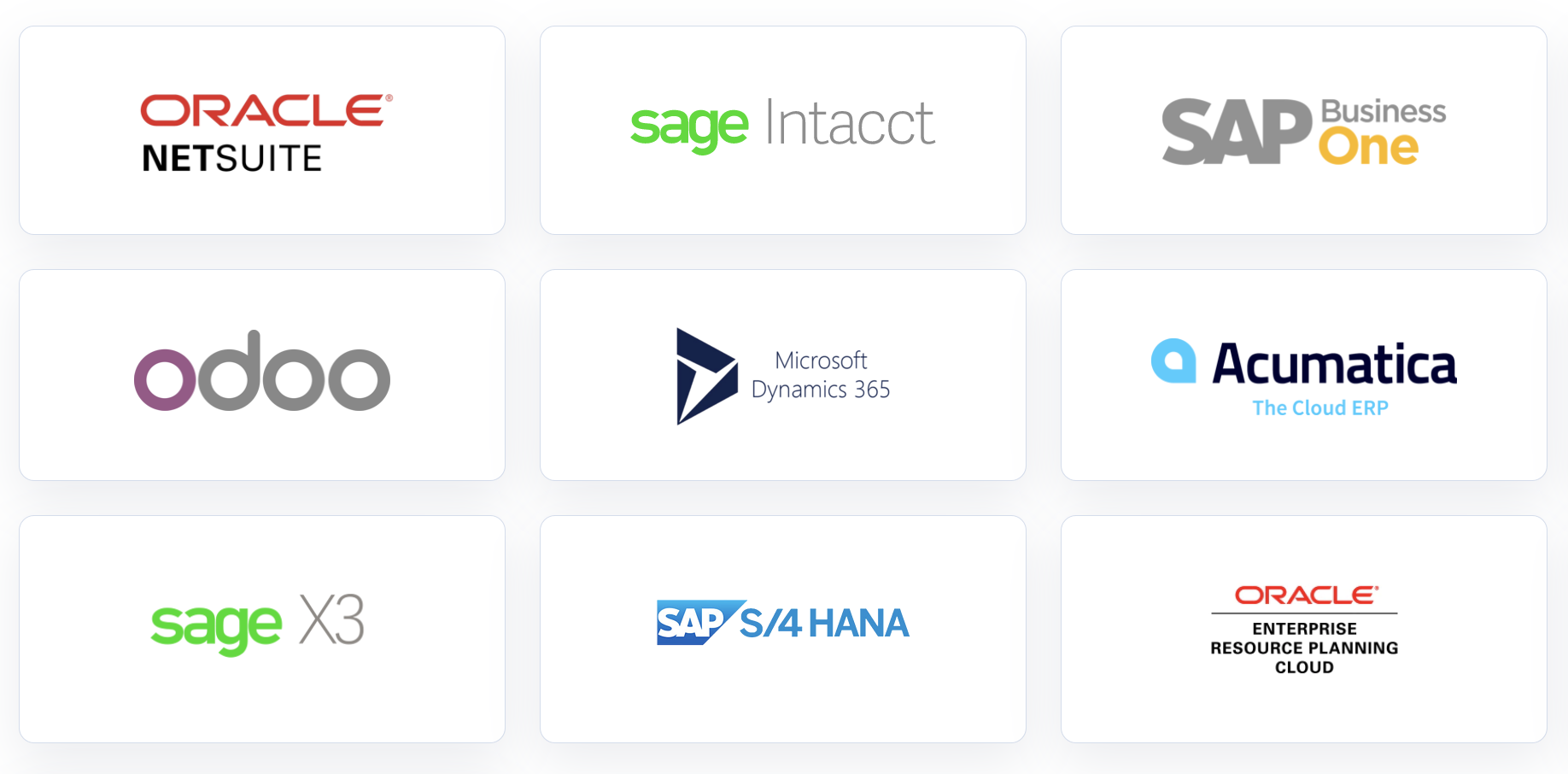











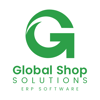


.png?width=278&name=sap-s-4hana-logo%20(2).png)















